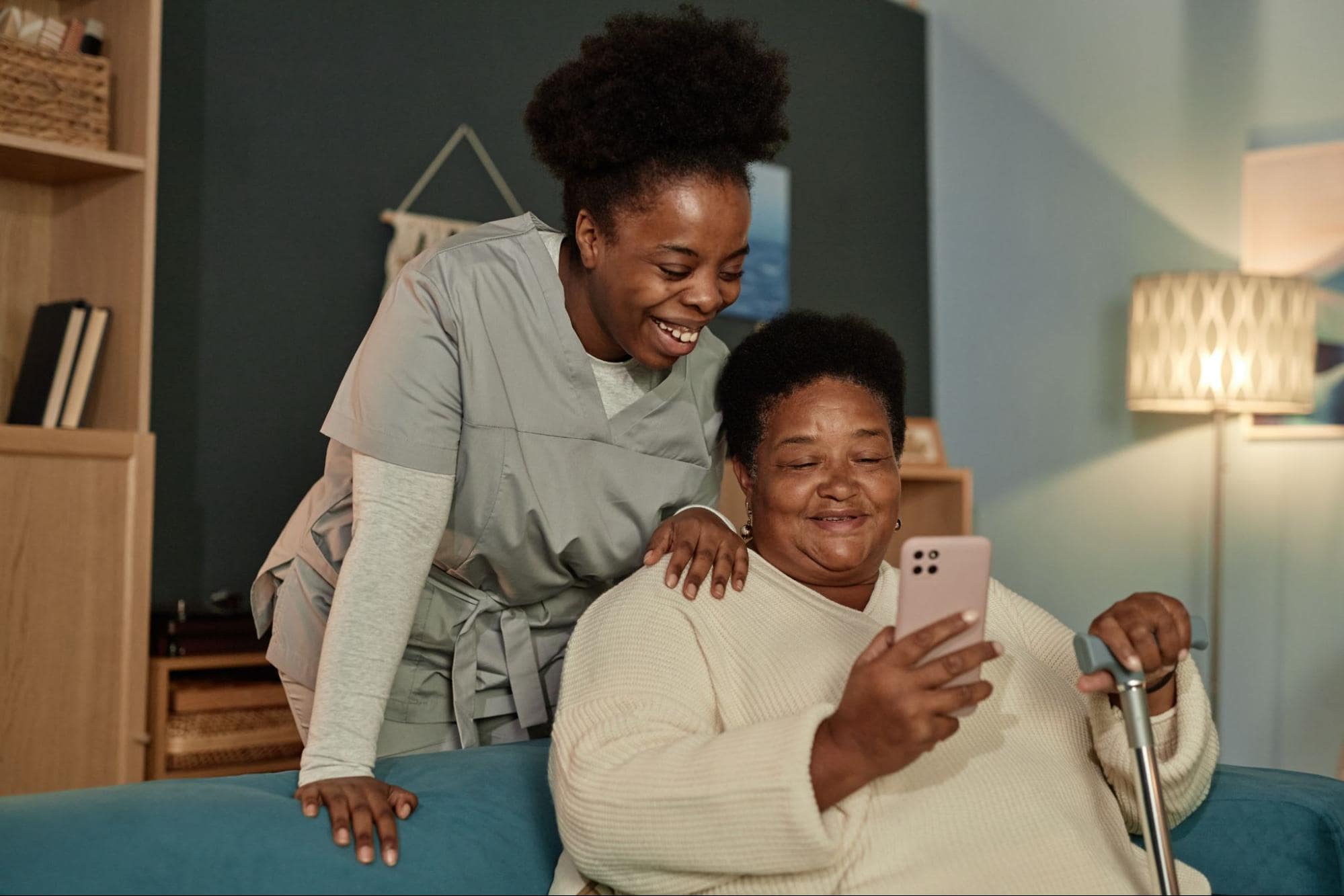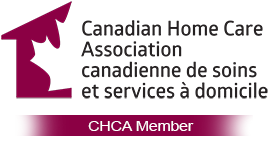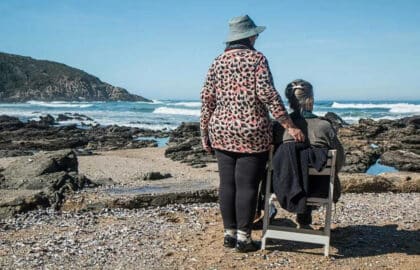Alzheimer's and Dementia Care
Navigate Alzheimer’s and dementia with care that adapts to each challenge. Our home support respects the journey, offering familiarity and understanding.

Memory Care Expertise
Specialized care tailored for Alzheimer's and dementia, enhancing life quality with expert, compassionate support.
Cognitive Wellness Focus
Engaging activities designed to stimulate cognitive functions, bringing joy and preserving mental agility.
Behavioral Support
Our caregivers are trained in managing dementia behaviors, providing calm, nurturing responses to ease anxiety and confusion.
Guided Support in Familiar Surroundings
We’ve worked with numerous families who weigh their options for support for loved ones living with dementia and Alzheimer’s. Caring for them in their home is often the route they choose, as this ensures a calming and familiar environment where they can thrive. At Assurance Home Care, we recognize these conditions are usually marked by significant changes such as confusion, mobility concerns, personality shifts, and memory lapses. Our Alzheimer’s and dementia care meets their needs now and as they evolve, providing a safe haven for graceful aging.
How We Support Your Loved One
- Mental Engagement: Providing stimulating activities and opportunities for meaningful social interaction to keep the mind active.
- Physical Activity: Promoting movement and exercise tailored to their abilities.
- Personal Care: Assisting with bathing, grooming, and dressing needs.
- Mobility: Offering safe transportation for medical appointments, errands, and social outings.
- Nutritious Meals: Preparing balanced meals and snacks to ensure proper nutrition.
- Household Assistance: Performing light housekeeping and laundry to keep their environment clean.
- Reminders: Providing timely reminders for medications and appointments.
- Safety Assurance: Continuously monitoring to ensure their safety and comfort.
Whether your loved one is experiencing the initial onset of Alzheimer’s or dementia or has transitioned into the later stages, our caregivers are here for quality support. From hourly care to live-in options, we seek to find a balance of professional assistance and heartfelt companionship. Care is at the centre of what we do, closely accompanied by peace of mind and seamless support where it’s needed most: at home.
Understanding Alzheimer’s and Dementia
Alzheimer’s and dementia affect a person’s memory and judgment, which may impact their daily routines. These can progress over time, often causing confusion, anxiety, or changes in behaviour.
It’s common for a memory-related condition to cause stress for families. Understanding what your loved one is experiencing makes it easier to support their comfort and sense of safety at home. Many families can support their loved ones by providing:
- Structured routines
- Calm communication
- Familiar surroundings
Allowing families to continue living with dignity and care.
Stages of Memory-Related Conditions
Memory-related conditions like dementia and Alzheimer’s don’t follow a straight line, but they do tend to unfold in stages—each with different support needs and emotional challenges. Recognizing the signs early and knowing how care evolves can help you stay one step ahead and create a plan that adapts with your loved one.
Whether you’re navigating subtle forgetfulness or facing the realities of round-the-clock support, each phase presents its own “job to be done”—from preserving independence to providing safety and comfort. Here’s how the proper care at the right time makes all the difference.
Early Stage: Building Trust, Maintaining Independence

In the early stage, your loved one may still live independently but show signs of mild memory loss—forgetting names, misplacing items, repeating questions, or feeling disoriented with time. These symptoms often bring a mix of concern and confusion: Is this normal aging or something more?
This is the stage where the goal is simple but vital—support without overstepping. Families often want to protect their loved one’s autonomy, while also ensuring they’re safe and emotionally supported.
Care at this point might include:
- Gentle reminders for appointments and medications
- Help with meal prep and errands
- Companionship to prevent isolation
- Encouragement to stay socially and mentally active
Light support in the early stage not only reduces day-to-day stress but also establishes a foundation of trust. When care starts early, it’s less disruptive and more collaborative—something your loved one can grow with, not resist.
Mid-Stage: Keeping Life Structured When the Unexpected Happens
As memory-related conditions progress, symptoms may become more pronounced and unpredictable. Your loved one may begin to wander, repeat stories more frequently, have trouble with hygiene or meals, or exhibit changes in mood or behaviour.
At this point, many families feel like they’re constantly reacting—juggling safety concerns, confusion, and emotional outbursts. What worked before may no longer be enough.
Mid-stage care is about establishing structure in a time of growing unpredictability:
- Daily routines that reduce anxiety and help with memory recall
- Personal care assistance—bathing, dressing, toileting—provided with compassion
- Mobility support to prevent falls or injuries
- Behavioural strategies that de-escalate frustration, confusion, or aggression
This is often when families realize they can’t—and shouldn’t—do it alone. A consistent and qualified caregiver from Assurance can provide not just relief, but stability.
Late Stage: Full-Time Support for Complete Care Needs
The late stage of dementia or Alzheimer’s often brings profound changes—reduced or lost verbal communication, increased risk of falls, and complete dependence on others for daily living. It can be heartbreaking, and for many families, overwhelming.
At this stage, your job shifts to ensuring safety, comfort, and dignity around the clock. Whether through 24/7 care or a live-in caregiver, the focus becomes:
- Total support for all activities of daily living
- Specialized feeding assistance and positioning
- Comfort measures and palliative-style emotional support
- Close monitoring for medical needs or sudden changes
This is when professional care can be the most transformative—not only for your loved one but for you. Knowing someone is there, awake and attentive, allows families to rest, regroup, and just be present.
If you’re trying to determine where your loved one is on this journey, or what kind of care makes sense now, our team can help you map a plan that evolves with them.
Let’s start with a conversation.
Activities and Routines

When caring for someone with dementia or Alzheimer’s, keeping them safe is essential—but helping them stay engaged, calm, and connected is just as important. It’s not just about passing the time; it’s about making the time count.
Whether your loved one is in the early stages or needs full-time care, the right mix of activities and a predictable routine can have a powerful impact on their mood, memory, and sense of self. It’s also a major source of comfort for families to know their loved one is doing more than “just getting by.”
Engagement Through Connection: Activities That Matter
When memory fades, connection matters more than ever. But engagement doesn’t have to be complicated—it just has to be personal.
Our caregivers are trained to identify and build activities around each individual’s past interests, abilities, and current mood. Some days that might mean helping with a puzzle or flipping through a favourite photo album. On other days, it might simply mean sharing music or a gentle stretch.
Here are just a few ways we keep loved ones meaningfully engaged:
- Cognitive games: Word searches, matching cards, and simple puzzles that promote focus and recall
- Music therapy: Singing along to familiar songs or listening together to calming playlists that bring back emotional memories
- Reminiscence and storytelling: Looking through family photos or prompting stories from earlier life to reinforce identity and create moments of joy
- Sensory activities: Working with fabrics, baking familiar recipes, tending to plants, or using textures to spark memory and calm
- Movement-based routines: Walks (indoors or outdoors), chair yoga, or guided stretching to encourage mobility and reduce restlessness
These aren’t distractions—they’re tools for emotional regulation and cognitive support. They help your loved one feel seen, not just managed.
Predictability Brings Comfort: Routines That Reduce Stress

Memory conditions can make each day feel uncertain. Establishing a familiar daily rhythm reduces confusion and provides something your loved one can rely on, even when their memory doesn’t.
We build routines around what already feels natural to your loved one—keeping wake-up times, meals, and evening wind-downs consistent. This kind of structure can:
- Reduce anxiety, especially during transitions like bathing or bedtime
- Support better sleep patterns
- Minimize behavioural outbursts
- Provide a sense of control and dignity
A typical day might include personal hygiene after breakfast, a short walk or activity block in the late morning, a quiet period after lunch, and gentle engagement in the late afternoon. These aren’t rigid schedules—they’re flexible frameworks that evolve based on your loved one’s needs, energy levels, and preferences.
And for families? It’s a relief to know there’s a plan and someone reliable executing it.
Meeting the Moment: De-escalation and Emotional Safety
Sometimes, even with the best routines and activities in place, a moment of confusion or distress arises. These moments can be hard for families to manage, especially if they trigger feelings of guilt, fear, or helplessness.
That’s where training and experience matter. Our caregivers are equipped with practical de-escalation strategies to manage frustration or fear with patience and compassion:
- Redirection: Gently shifting focus to a familiar or comforting activity
- Validation and calm tone: Meeting the person where they are emotionally, rather than correcting them
- Safe environment management: Removing overstimulating or distressing triggers
- Comfort techniques: Using music, touch, or familiar phrases to soothe
These techniques don’t just “calm things down.” They preserve dignity, build trust, and help prevent escalation. And for families, they offer something even more valuable: peace of mind.
Your loved one deserves more than supervision—they deserve connection, purpose, and calm. If you’re wondering what personalized care could look like for them, we’re here to explore it with you.
Let’s talk about their routine, their interests, and how we can help.
Our Commitment to Excellence
Assurance Home Care is proudly members of or accredited by leading provincial and national home care associations, the Better Business Bureau, and ISO 9001 certified. Each emblem represents our unwavering dedication to quality, trust, and the highest standards of care.
Related Blogs
Frequently Asked Questions
Let us get you the answers you need. Below are just a few examples of questions you may have. If you do not see the answers you need, reach out here. We’d be happy to provide a no-charge in home assessment at your convenience
Our caregivers are trained to handle the unique challenges of Alzheimer’s, including memory support, behavior management, and engagement in cognitive activities tailored to each stage of the disease.
We use gentle redirection and calming techniques, creating a safe environment that can help diffuse stress and anxiety often associated with dementia.
We conduct a home safety assessment and make necessary adjustments to minimize risks of falls or wandering, creating a secure living space.
Absolutely, our caregivers ensure that medications are taken correctly and on schedule, managing prescriptions alongside your loved one’s healthcare providers.
Caregivers are matched based on experience, training in dementia care, and compatibility with the client’s personality and needs.
This is one of the most common questions—and a very normal one. Dementia is an umbrella term for conditions that affect memory, thinking, and social ability. Alzheimer’s is the most common form of dementia.
In practical terms? The day-to-day experience of care matters more than the label. We’ll help you understand how your loved one’s condition affects them—and how we can support them as it evolves.
When a loved one panics, becomes aggressive, or wanders off, it can be terrifying. Our caregivers are trained in exactly these moments—not just to keep your loved one safe, but to calm the situation gently and respectfully.
Whether it’s redirection, emotional validation, or crisis planning tailored to your loved one’s specific behaviours, we act quickly and with care. We’re not just trained for the moment—we’re prepared for your loved one’s moments.
When care is urgent, delays can be distressing. We understand. In many cases, especially in Ottawa and Toronto, we can begin care within just a few days.
We’ll move fast, but never at the expense of quality. From your first call to our first visit, we’re ready to act—with compassion, clarity, and responsiveness you can count on.
The cost of care shouldn’t come with financial anxiety. We’ll walk you through everything clearly—no surprises, no fine print.
We offer flexible payment plans, so you can make the best decision for your family’s needs and budget. Our focus is on peace of mind, not just pricing.
You don’t have to figure this out alone. Some long-term care insurance plans do help with in-home services, and there may be tax credits or provincial programs you qualify for.
We’ll help you navigate what’s available in your area—and how to make it work for your family.
Yes—and more than just checklists and certificates. Our caregivers are trained in dementia-specific communication, behavioural strategies, and non-verbal cues.
But more importantly, they know how to be with someone living with dementia—how to read the mood, de-escalate tension, and maintain dignity through every interaction.
Dementia doesn’t stand still—and neither do we. Our care plans are designed to evolve with your loved one’s condition.
As needs shift, we adjust schedules, support levels, and even caregiver matches if needed. You’ll never be locked into care that no longer fits. For more information, please visit our Care Management page.
Yes. Our caregivers provide medication reminders, help track changes in behaviour or health, and ensure prescriptions are taken safely.
For more complex needs, we coordinate with nurses and medical professionals—so you’re never left guessing or managing alone. For more informaton, please visit our Nursing Care page.
Resistance is common—especially early on. Our caregivers take a gentle, non-confrontational approach, using patience, routine, and relationship-building to earn trust.
Over time, many clients grow to welcome the presence of “a helper” or “a friend,” even if they were hesitant at first.
We consider the client’s needs, personality, and preferences to ensure a compassionate and compatible caregiver match.
There’s no one-size-fits-all answer. But for many families, keeping a loved one at home offers emotional and cognitive benefits—less disorientation, more comfort, and the ability to maintain routines.
In-home care can reduce the stress of transitions and offer tailored support without sacrificing familiarity.
You’re not abandoning anyone—you’re showing love in one of the most responsible, meaningful ways possible.
Bringing in a caregiver allows you to stay in your role as son, daughter, or partner, not just nurse or supervisor. You’re still showing up. You’re just getting support to do it sustainably.
We tailor activities to your loved one’s interests, personality, and energy levels. That might mean puzzles, music, storytelling, or movement—all designed to bring joy and encourage connection.
It’s never generic. We focus on what feels like them, even as memory changes.
This can be one of the hardest steps. We’ll help you approach it gently, framing the caregiver as a helper, a companion, or someone to make things easier around the house.
Sometimes it’s not what you say, but how you say it—and we’ll guide you through that.
Small changes can make a big difference. We offer home safety checks and recommendations that reduce fall risks, confusion, and wandering.
This might include rearranging furniture for easier movement, installing nightlights, or adding cues to support memory. Safety doesn’t have to feel institutional—it can feel like home.







